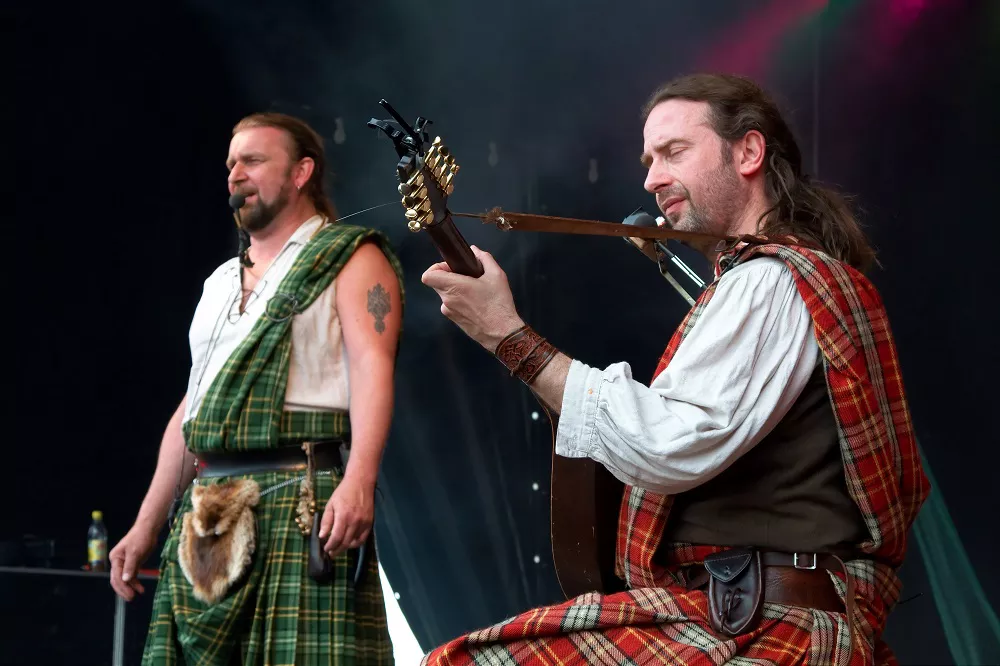Celtic music has a rich and diverse history, but when it comes to its origins, the question that often arises is whether it is Scottish or Irish in nature. This debate has been ongoing for centuries, fueled by the deep cultural and historical connections between Scotland and Ireland. In this article, we will explore the roots of Celtic music in both countries, the distinctiveness of their musical traditions, and how they have influenced each other over time.
The Origins of Celtic Music
To understand whether Celtic music is Scottish or Irish, we must first delve into the origins of Celtic culture and music. The term “Celtic” refers to a group of Indo-European peoples who lived in various parts of Europe, including Ireland and Scotland, during ancient times. These early Celts had a rich oral tradition, and music played a significant role in their daily lives.
Irish Celtic Music
Irish Celtic music is often considered the cornerstone of Celtic music as a whole. It is deeply rooted in Ireland’s history and culture, dating back over a thousand years. The Irish harp, known as the “cláirseach,” is an iconic instrument in Irish Celtic music. This instrument has been a symbol of Ireland for centuries and is closely associated with traditional Irish melodies.
One of the essential characteristics of Irish Celtic music is its storytelling aspect. Many Irish Celtic music pieces are ballads that narrate stories of love, loss, heroism, and mythology. These songs are often accompanied by instruments like the fiddle, tin whistle, and bodhrán, creating a unique and emotive sound.
Another distinctive feature of Irish Celtic music is its use of ornamentation and melodic embellishments. Musicians often incorporate intricate ornamentation techniques into their performances, giving the music a lively and intricate quality.
Scottish Celtic Music
Scottish Celtic music, on the other hand, has its own unique flavor and history. It is deeply intertwined with the cultural heritage of the Scottish people. The bagpipe is one of the most iconic instruments in Scottish Celtic music, known for its distinctive sound that can be both haunting and uplifting.
One cannot discuss Scottish Celtic music without mentioning the Highland Games, where the bagpipe is prominently featured. The skirl of the bagpipes is a stirring and evocative sound that has become synonymous with Scotland. It is in these games that the connection between Scottish music and Scottish identity is most evident.
Scottish Celtic music also incorporates the fiddle, accordion, and flute, creating a rich and diverse soundscape. Like its Irish counterpart, Scottish music has a storytelling tradition, with many songs narrating tales of Scottish history, battles, and folklore.
The Interplay Between Irish and Scottish Celtic Music
While Irish and Scottish Celtic music each has its distinct characteristics and traditions, they are not isolated from one another. The proximity of Ireland and Scotland has led to a significant exchange of cultural and musical influences over the centuries.
One key aspect of this interplay is the sharing of instruments. For example, the fiddle is a prevalent instrument in both Irish and Scottish Celtic music, and the styles of playing have influenced each other. Musicians from both countries have learned from and collaborated with each other, leading to a cross-pollination of musical ideas.
Furthermore, the Irish and Scottish Gaelic languages share linguistic roots, and many songs in both traditions are sung in these languages. This linguistic connection has facilitated the exchange of musical themes and lyrics, creating a sense of shared cultural heritage.
In addition to instrument and language influences, historical events have also played a role in the interplay between Irish and Scottish Celtic music. The forced migrations of the Highland Scots to Ireland in the 17th century and the subsequent blending of cultures in the Irish diaspora communities have had a lasting impact on both musical traditions.
Modern Celtic Music
In the modern era, Celtic music has evolved in diverse ways, influenced not only by its Irish and Scottish roots but also by global musical trends. Celtic fusion music has gained popularity, incorporating elements of rock, jazz, and world music into the traditional Celtic sound.
Bands like The Chieftains, Altan, and The Bothy Band have played significant roles in promoting and preserving traditional Celtic music, while artists like Enya and Clannad have taken Celtic music in new and innovative directions, blending it with elements of ambient and new age music.
It’s important to note that while Celtic music has evolved and diversified, it still retains its core identity and connection to the cultures of Ireland and Scotland. Whether it’s a modern Celtic rock band or a traditional session at a local pub, the spirit of Celtic music continues to thrive.
Conclusion
So, is Celtic music Scottish or Irish? The answer is that it is both and neither. Celtic music is a testament to the shared heritage and cultural interplay between Ireland and Scotland. While each has its distinct traditions and sounds, they have influenced and enriched each other over centuries.
The beauty of Celtic music lies in its ability to transcend borders and speak to the hearts of people around the world. Whether you find yourself tapping your foot to an Irish jig or being moved by the mournful sound of Scottish bagpipes, you are experiencing the richness of Celtic music that defies easy categorization.
In the end, the debate about whether Celtic music is Scottish or Irish misses the point. Celtic music is a living testament to the enduring spirit of two nations and their shared love for storytelling, melody, and the enchanting power of music. It is a celebration of a heritage that continues to captivate and inspire audiences worldwide.

